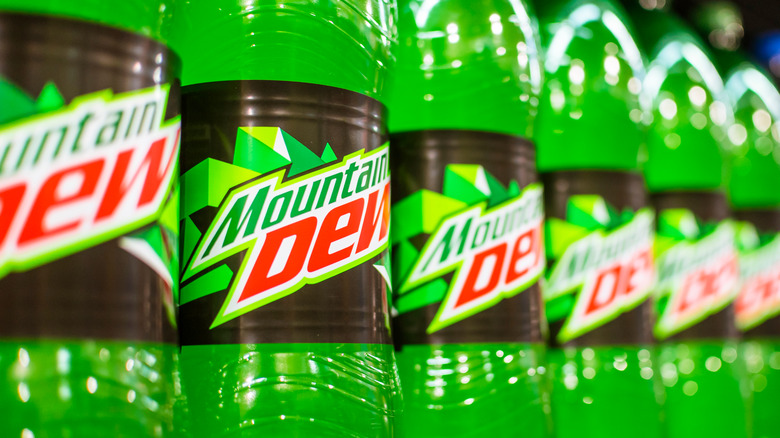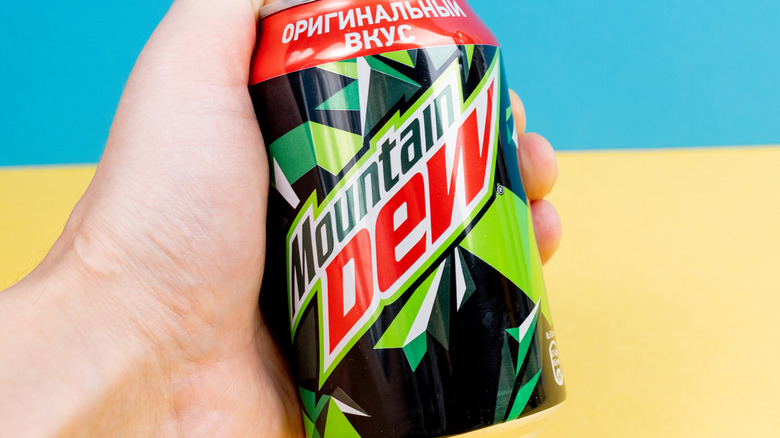Can Mountain Dew Really Dissolve Bone?
When Mountain Dew's maker PepsiCo faced a lawsuit in January 2012 over the claim that a man had found a dead mouse in his can, they resorted to an interesting defense. Fox News relayed the line of the argument: the mouse could not have been in the can, as it would have dissolved between the time of the canning and the claimed drinking date. Veterinarian Lawrence McGill said that all that would have remained was a "jelly-like" substance.
This is just another instance of the idea that if you left your tooth in a glass of Coca-Cola overnight, it would dissolve. The image of soft drinks instantly rotting our heads gained such saliency that Snopes deemed it necessary to issue a fact check. "The idea that any substance which can dissolve teeth must therefore damage our teeth if we drink it is nonsensical," they wrote. The point they took issue with is that we don't hold Coke in our mouths, waiting for it to rot our teeth. We drink it. Quickly.
But they do admit that Coca-Cola does contain citric acids which could "eventually" (Snopes' italics) dissolve teeth. That said, many things we drink contain citric acid, and those that contain them do so at such low quantities that they won't dissolve our innards so easily.
However, that does leave the very theoretical door open for Mountain Dew to dissolve the bones of a mouth, technically.
Mountain Dew could dissolve some of the mouse
The quixotic defense PepsiCo gave caused Scientific American to dive into the effects of citric acid on the body. Yan-Fang Ren of the University of Rochester School of Medicine and Dentistry said that the mouse's bones and enamel could dissolve over a few months, but "dissolving [the mouse] does not mean it will disappear, because you'll still have the collagen and the soft tissue part. It will be like rubber."
Furthermore, the piece notes studies that showed how Mountain Dew erodes enamel six times faster than colas. Specifically, the dentist J. Anthony von Fraunhofer left a tooth in Mountain Dew for two weeks and another tooth in Coca-Cola for two weeks. The Mountain Dew destroyed 6% of the tooth's volume, while the Coke only managed 1%. However, as Snopes rightly argued, we don't soak our bodies in vats of soda for weeks on end. Scientific American does qualify that the amount of fluids the teeth were exposed to constituted an estimated 13 years of "normal beverage exposure."
All that aside, the data indicates that a mouse's body wouldn't simply vanish after being left in a can of Mountain Dew. In August 2012, Beverage Daily reported that PepsiCo settled out of court for an undisclosed sum. This might be the better outcome for the company. While having mice in your cans is worrisome, selling a drink that utterly breaks down biological matter might be even more so.

